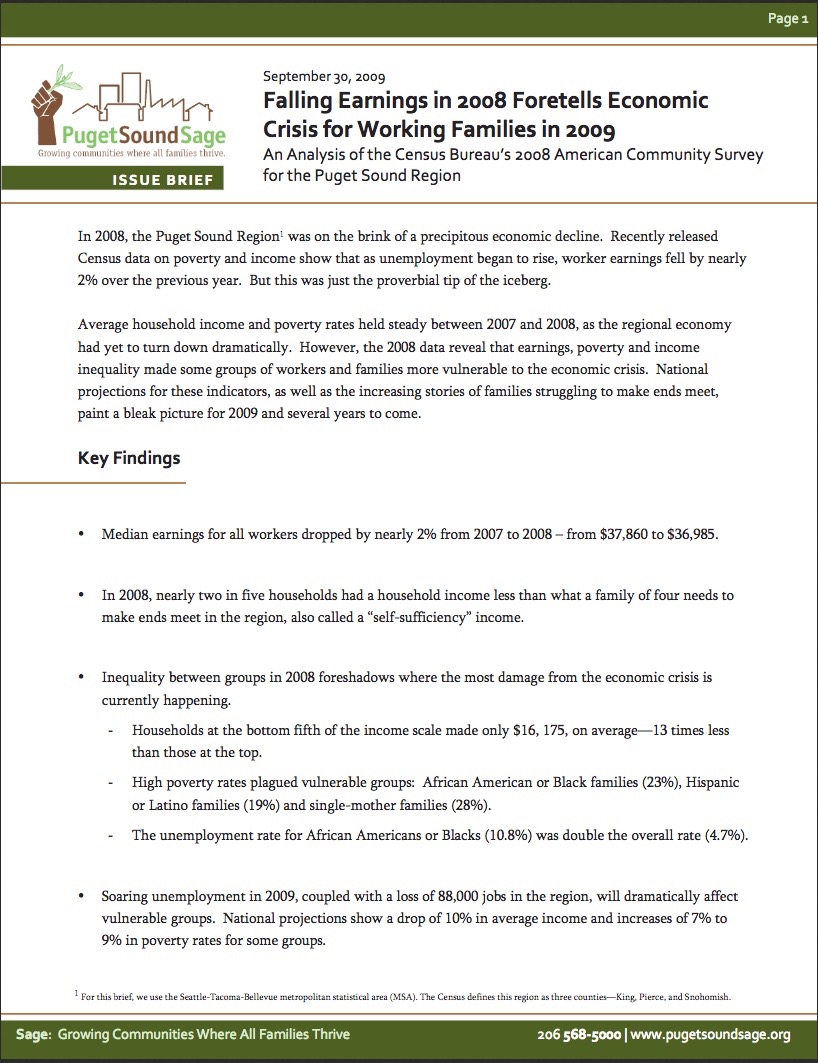Average earnings for Seattle metro workers dropped 2% between 2007 and 2008, just as the recession began to have an effect on the region, according to an analysis of newly released Census data.
September 2009 - Average household income and poverty rates remained flat between the two years. But, soaring unemployment and job loss since the end of 2008 have put many working families already facing hardship last year into economic crisis this year.
The drop in earnings in 2008 represents the proverbial tip of the recession iceberg. According to the Census, Seattle metro unemployment was only 4.5% in 2008. Over the summer unemployment soared to 9% in the region and 88,000 jobs had been lost since last August, according to the Bureau of Labor Statistics.
With predictions of high unemployment to continue through next year, families at the bottom of the economic ladder are vulnerable to slipping into poverty and hardship.
In 2008, nearly two in five households had a household income less than what a family of four, with two earners, needs to make ends meet in the region (also called a “self-sufficiency” income).
Households in the bottom fifth of the income scale brought in only $16,175 on average – 13 times less than those at the top. High poverty rates plagued vulnerable groups: African American or Black families (23%), Hispanic or Latino families (19%) and single mother families (28%).
Olufemi Dosunmu, a truck driver at the Port of Seattle, has been directly affected by a sharp drop-off in imports. “If people aren’t buying things from stores, people like me don’t work,” Dosunmu said. ”Sometimes I go three days to a week without a load, yet I still have to pay for insurance, maintenance and licenses – all before I put food on the table. I have to go to family members for help.”
Download Report

